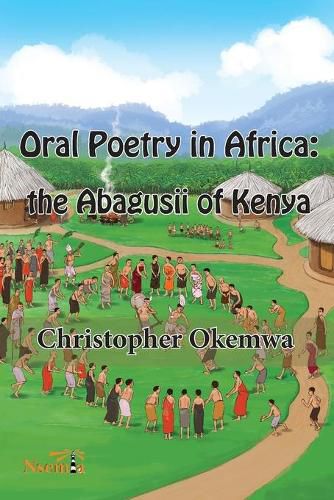Readings Newsletter
Become a Readings Member to make your shopping experience even easier.
Sign in or sign up for free!
You’re not far away from qualifying for FREE standard shipping within Australia
You’ve qualified for FREE standard shipping within Australia
The cart is loading…






This title is printed to order. This book may have been self-published. If so, we cannot guarantee the quality of the content. In the main most books will have gone through the editing process however some may not. We therefore suggest that you be aware of this before ordering this book. If in doubt check either the author or publisher’s details as we are unable to accept any returns unless they are faulty. Please contact us if you have any questions.
Oral Poetry of the Abagusii of Kenya highlights characteristics of African oral traditions with a particular focus on the oral poetry of the Abagusii of Kenya. It shows that oral poetry in the Abagusii community covered every facet of life. The community’s social-political and economic life, history, values, norms and customs were stored in the oral poetry, in addition to proverbs, riddles, and folktales. Notably, oral poetry coloured the entire life of Omogusii and was sung during birth, initiation, marriage, and death ceremonies.
This book documents the oral poetry of the community in its original form, and in various versions that were practised or sung in different parts of the region inhabited by the community. Further, the book discusses the context in which this poetry was sung and explains some of the cultural practices, norms, and customs that surround or motivated the composition of the poetry.
The advent of colonialism had a ‘corrupting’ influence on the original poetry, more so with the adoption of English words and phrases. This kind of poetry has not been left out.
Aside from the general poetry the book also captures emeino, the Abagusii classical oral poetry. While general poetry utilized improvisation as a technique in its presentation and performance, classical poetry was a fixed form that demanded to be sung in its original form. Unlike the general poetry that, in its ephemerality, invited additions and subtractions from the text, classical poetry was permanent in text with no room for improvisation.
$9.00 standard shipping within Australia
FREE standard shipping within Australia for orders over $100.00
Express & International shipping calculated at checkout
This title is printed to order. This book may have been self-published. If so, we cannot guarantee the quality of the content. In the main most books will have gone through the editing process however some may not. We therefore suggest that you be aware of this before ordering this book. If in doubt check either the author or publisher’s details as we are unable to accept any returns unless they are faulty. Please contact us if you have any questions.
Oral Poetry of the Abagusii of Kenya highlights characteristics of African oral traditions with a particular focus on the oral poetry of the Abagusii of Kenya. It shows that oral poetry in the Abagusii community covered every facet of life. The community’s social-political and economic life, history, values, norms and customs were stored in the oral poetry, in addition to proverbs, riddles, and folktales. Notably, oral poetry coloured the entire life of Omogusii and was sung during birth, initiation, marriage, and death ceremonies.
This book documents the oral poetry of the community in its original form, and in various versions that were practised or sung in different parts of the region inhabited by the community. Further, the book discusses the context in which this poetry was sung and explains some of the cultural practices, norms, and customs that surround or motivated the composition of the poetry.
The advent of colonialism had a ‘corrupting’ influence on the original poetry, more so with the adoption of English words and phrases. This kind of poetry has not been left out.
Aside from the general poetry the book also captures emeino, the Abagusii classical oral poetry. While general poetry utilized improvisation as a technique in its presentation and performance, classical poetry was a fixed form that demanded to be sung in its original form. Unlike the general poetry that, in its ephemerality, invited additions and subtractions from the text, classical poetry was permanent in text with no room for improvisation.